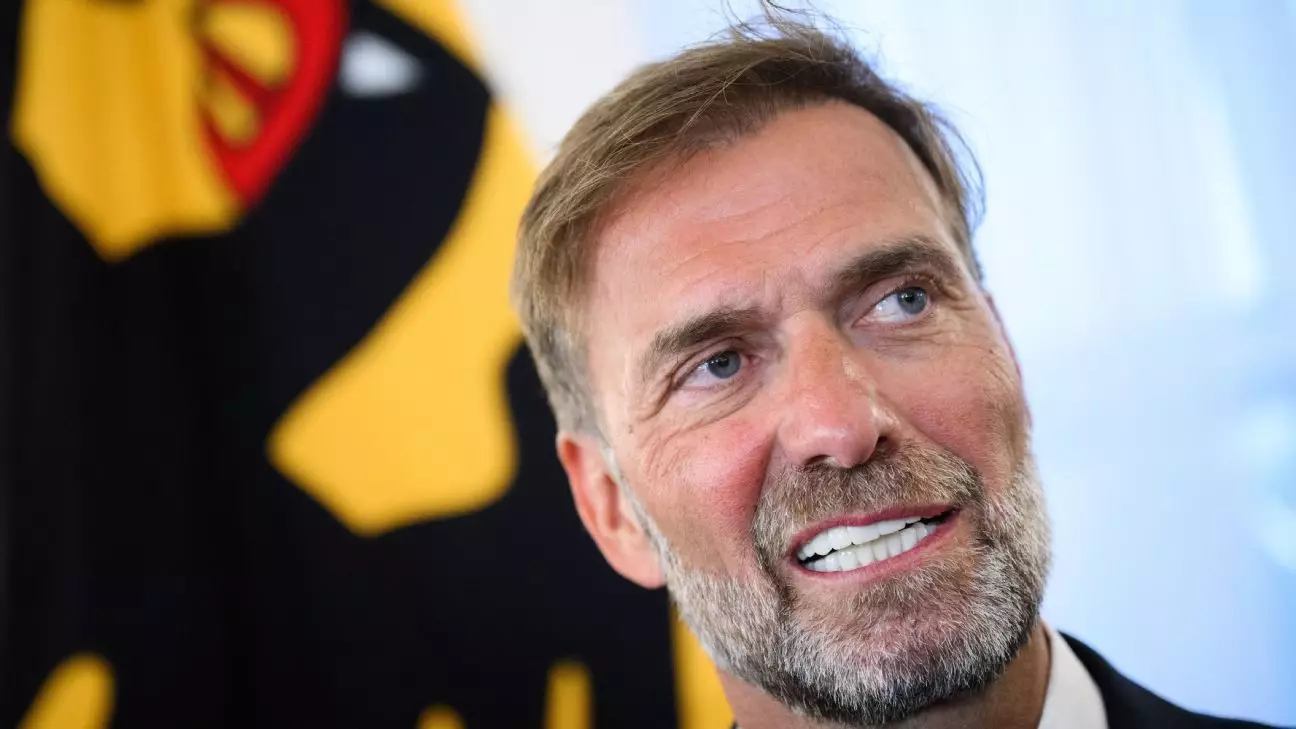Jürgen Klopp has made headlines following his unexpected decision to join the Red Bull group of football clubs, a move that has ignited a mixed response from fans, particularly those connected to his previous teams in Germany. This article seeks to dissect Klopp’s statement regarding his transition and the underlying ramifications of his new role within the global football context created by Red Bull.
Klopp’s transition comes after a commendable run at Liverpool, where he led the team to win their first Premier League title in 30 years, along with multiple trophies, solidifying his status in the football world. The announcement of his new position as head of global football for Red Bull, taking effect from January, raises eyebrows and elicits varied reactions across the football community.
The former Dortmund manager has articulated that his intention was never to disrespect or tread on the legacies of his former clubs. His heartfelt acknowledgment of his love for Borussia Dortmund and Mainz underscores the strong emotional ties he has with these organizations. However, given the nature of his new role, it’s difficult to ignore the implications of effectively working for an organization whose football club, RB Leipzig, faces significant opposition from a large segment of German football fans. The skepticism often stems from the perception of Red Bull as a corporate entity undermining traditional football values.
Upon the announcement, Klopp faced a torrent of backlash particularly from fans of Borussia Dortmund, with some expressing their dissatisfaction through protest banners and vocal criticism. Fans of clubs like Mainz—the club where Klopp’s coaching journey began—have also expressed their dissent, leading some to question the rationale behind Klopp’s decision, all of which depicts the complexities of fan loyalty and emotional investment in club identity.
This dissent highlights a broader problem concerning the intersection of commercial interests and fan expectations in modern football. Red Bull, with its aggressive approach to club ownership and management, represents a shift from traditional football. Many supporters are justifiably worried that this trend of commercialization could further erode the ethics of the sport they hold dearly.
In the midst of this turmoil, Klopp remains optimistic, suggesting that every step he takes is met with contention, revealing a deeper reality for professional coaches whose career decisions inevitably trigger disapproval from certain factions of their fanbase. His intention, he claims, was not to disturb the loyal fans from his prior stints but to embrace a role that he perceives as pivotal in revitalizing football, especially in regions that have benefitted from Red Bull’s investments.
Klopp has attempted to frame his new role positively, emphasizing that he will be serving primarily as an adviser to the various clubs under the Red Bull umbrella. This perspective seeks to highlight the potential benefits of such corporate involvement in football, especially in nurturing talent and elevating the quality of football played in different areas. His comments on Red Bull’s contribution to football in the former East Germany pose a sharp contrast to the general skepticism surrounding their business model.
By possibly adopting an advisory position rather than a conventional coaching role, Klopp may be signalling a strategic approach to mitigating the backlash. His acknowledgment that coaches can often feel isolated within clubs serves to humanize his perspective, suggesting that the role may afford him the opportunity to influence club strategies without the day-to-day pressures of managerial responsibilities.
Klopp’s move to Red Bull encapsulates the evolving landscape of football where corporate interests, emotional ties, and professional ambitions intersect. While the criticism he faces is understandable given the longstanding traditions in German football, it is essential to appreciate the multifaceted nature of decision-making in a coach’s career. As Klopp steps into this new chapter, one can’t help but wonder what this means for the future of football at large and how he, as a prominent figure, might navigate these complex relationships between tradition, loyalty, and modernity in a sport that is constantly changing.

